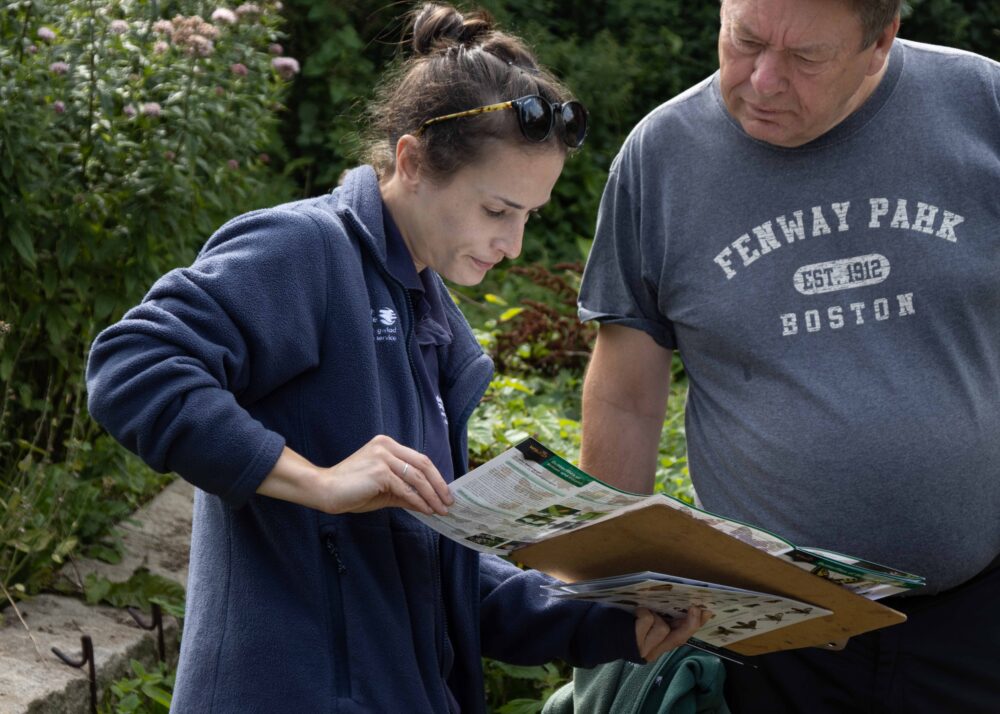Help flown in for Prestatyn winged wildlife members

Support is being flown in for a smaller winged member of Prestatyn’s local ecosystem.
Denbighshire Countryside Services along with volunteers supported by Nature for Health have lent a helping hand to Prestatyn’s moth community.
Studies have found that moths have declined in the UK since 1968 by nearly 30 percent, with other 60 species becoming extinct during the last century.
The decline is believed to be due to a combination of loss of suitable habitats, changing in the way gardens are managed, more light pollution and climate change.
Moths are important for our ecosystem as they provide needed food for a variety of wildlife including insects, frogs, toads, lizards, shrews, hedgehogs, bird and bats.
Countryside staff and the volunteers carried out identification work of moths at the allotments near Coed Morfa. Looking at numbers and species can signal any changes to the local environment suc as the impact of pesticides, pollution or climate change.
The group also carried out work to improve the biodiversity of the area near the Morfa Gateway area to support moths and other insects including bees and butterflies.
Countryside Ranger Sasha Taylor said: “Moths are vital to the health of our ecosystems, they provide food for a variety of different species from bats to birds. Many moth species are already in decline and it is important that we take steps to encourage and support their life cycles. Monitoring them can give us important information about biodiversity, how the local environment is actually doing and what we need to do to support them, such as improving their local habitat and providing more host food plants and wildflowers”
Cllr Barry Mellor, Lead Member for Environment and Transport, said: “We need to support species who are part of our local biodiversity otherwise we will lose them for future generations and I am grateful to the work Countryside and the volunteers have carried in Prestatyn.”




